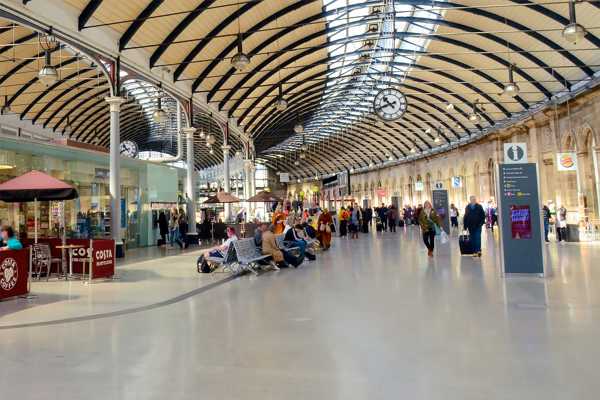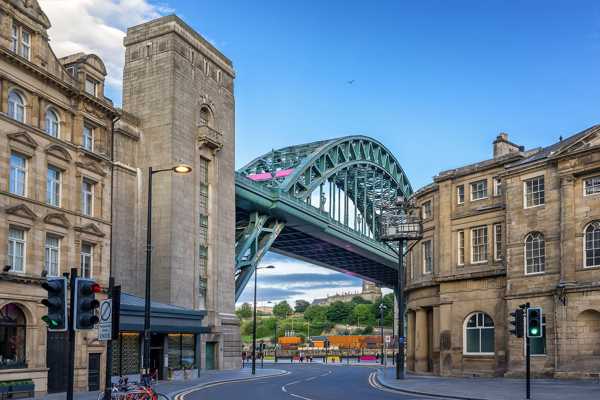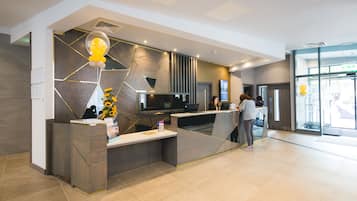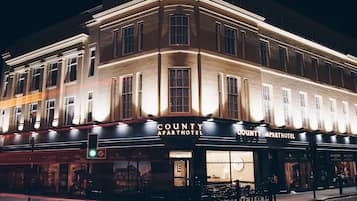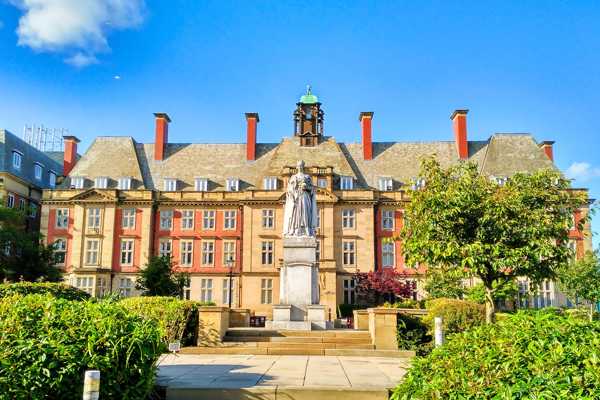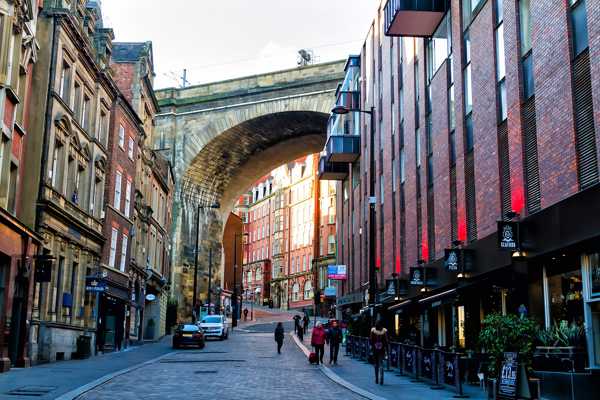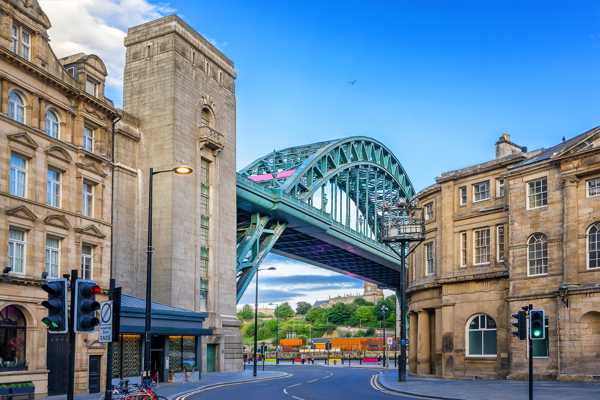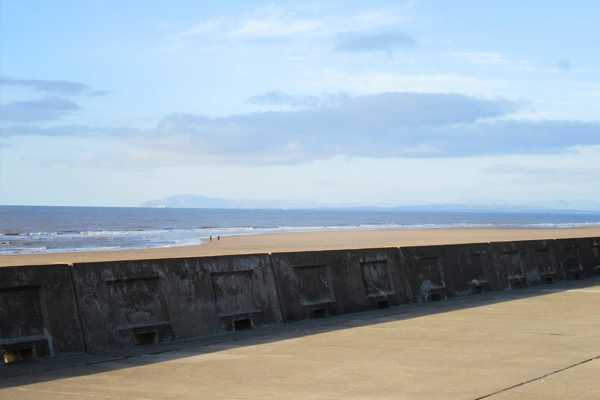You can find plenty of picturesque villages in Northumberland, many of which you'll find by the sea. Summer is an excellent time to take a road trip out of cities like Newcastle-upon-Tyne or Edinburgh, especially if you’re looking for a beach getaway with miles of soft sand and excellent water sports.
Northumberland’s inland villages and towns are great for those interested in history. Medieval castles, bastioned walls, and Roman ruins are just some of the things you can find in and around idyllic traditional towns. Check out our guide to the most picturesque villages in Northumberland.
- 1
Hexham
Explore an abbey from 675 AD

- History
- Photo
Hexham is a vibrant market town in Northumberland, around 25 miles east of Hadrian’s Wall. Explore on foot to really take in its mediaeval charm – a must-visit is Hexham Abbey, which has a well-preserved crypt with ancient Roman inscriptions dating back to 675 AD. You can also visit the 14th-century Moot Hall and Hexham Old Gaol, England’s oldest purpose-built prison.
Start the day at Market Place, where you can find excellent cafes, restaurants, and speciality shops. A farmers’ market takes place twice a month. Nightlife in Hexham is usually centred around the Queen's Hall Arts Centre, where you can enjoy drama, music and film screenings.
Map - 2
Alnwick
A must-visit for Potterheads

- Families
- History
- Photo
Alnwick is an excellent place to visit for families, especially if you or your little ones are fans of the Harry Potter film series. Many will recognise the 11th-century Alnwick Castle as the film set of Hogwarts School of Witchcraft and Wizardry. You can even take part in broomstick lessons in the castle grounds, usually between 10.30 am and 4 pm.
The adjacent Alnwick Garden offers many kid-friendly activities, from climbing one of the world’s largest treehouses to exploring a bamboo maze. Alnwick is best explored on foot – the medieval market town’s winding cobbled streets are lined with plenty of independent shops, restaurants, and pubs.
Map - 3
Morpeth
Visit a quirky museum dedicated to bagpipes

- Families
- Photo
Morpeth lies on the banks of the River Wansbeck, around 16 miles north of Newcastle upon Tyne. A must-see is Carlisle Park, which has lush gardens (including the award-winning William Turner Gardens), woodland paths and picnic areas overlooking the river.
A quirky landmark of the town is the Morpeth Chantry Bagpipe Museum, founded in 1987. It displays mostly Border pipes and Northumbrian smallpipes, giving you an insight into the local music culture. The best time to visit Morpeth is when the town hosts the Northumbrian Gathering. This annual event celebrates the county’s history and culture for 3 days, so expect lots of fun concerts, battle re-enactments, workshops, and exhibitions.
Map - 4
Seahouses
Hit the beaches for summertime fun

- Photo
Seahouses is known as the gateway to the Farnes Islands, the breeding grounds of puffins, grey seals and Arctic terns. Wildlife-watching and boat tours often depart for the islands from Seahouses Harbour (or North Sunderland Harbour) in spring and autumn.
The fishing village itself has plenty of notable landmarks, with sandy beaches in its northern and southern ends. The harbour is very picturesque, thanks to colourful fishing boats and pleasure boats bobbing in the ocean. Seahouses lies within the Northumberland Coast Area of Outstanding Natural Beauty, about an hour’s drive north of Newcastle upon Tyne.
Map - 5
Bamburgh
A North East England village offering excellent surfing

- Adventure
- History
- Photo
The village of Bamburgh has stretches of sandy beaches, backed with views of the Farne Islands and Holy Island. It’s one of the best surf spots in North East England, attracting many surfers and kite surfers in winter. At low tide, you can find several rock pools around the Bamburgh Lighthouse in Blackrocks Point.
A must-visit is Bamburgh Castle, located on a volcanic outcrop 150 ft above the village. The Norman stronghold is open to the public, giving you access to its staterooms, armoury, and art gallery.
Map - 6
Kielder
Stargaze at the Kielder Observatory

- Families
- History
- Photo
Kielder lies in the western fringe of Northumberland, near Scotland’s border. This remote village is great for escaping crowds, though many aspiring astronomists come here for stargazing at the Kielder Observatory. Kielder Castle dates back to the 18th century, serving as a hunting lodge for the Duke of Northumberland.
The 250-square-miles of Kielder Water and Forest Park has purpose-built forest and bike trails, a manmade lake, and self-catering forest lodges. Go for a short stroll from the village to enjoy scenic views at the Kielder Viaduct, one of England’s best-preserved skew-arch bridges that makes a popular photo spot.
Location: Hexham, UK
Map - 7
Warkworth
Hop on a boat to visit a stone chapel

- Families
- History
- Photo
Warkworth is a picturesque village surrounded by a loop of the River Coquet in Northumberland. Some of its most photographed spots include a well-preserved 12th-century castle and 14th-century hermitage. Summertime sees crowds flocking to Warkworth Beach, which has a long, sandy bed with sand dunes, picnic spots, and children’s play areas.
Located on the river’s south bank, the Warkworth Hermitage is a stone chapel that’s only accessible by boat. Warkworth Castle stands on a hilltop overlooking the village – a vibrant flower show is hosted in its grounds in August.
Map - 8
Amble
A harbour town that hosts the UK’s only puffin festival

- Families
- Photo
- Unusual
Amble lies on a headland along the Northumberland coast, less than 2 miles southeast of Warkworth. This harbour town is known for hosting the only puffin festival in the UK – expect a craft fair, live music, guided nature walks, birdwatching, and water sports near the town’s award-winning marina.
The Amble Harbour Village has over a dozen wooden ‘pods’ by the seafront, mostly occupied by independent retailers and restaurants. If you want to see nesting birds, Coquet Island is about 1 mile off the coast of Amble. Summertime sees over 30,000 nesting birds and over 60 seal colonies on the island.
Map - 9
Berwick-upon-Tweed
Escape the city life in England’s most northerly town

- Adventure
- History
- Photo
Berwick-upon-Tweed lies close to Scotland’s border, famed as the most northerly town in England. It’s surrounded by the 19th-century Elizabethan Walls, designed to prevent marauders from entering the town. You can walk the 1.2-mile-long bastioned town wall for views of the River Tweed and Berwick’s historic bridges.
Seasoned walkers often tackle the 30-mile-long Berwickshire Coastal Path, which runs along Scotland’s coastline from Cockburnspath to Berwick-upon-Tweed. Berwick-upon-Tweed is a great place for beachgoers, thanks to its coastal scenery and pristine (usually uncrowded) beaches. End the day with a show at the Maltings Theatre & Cinema or with a pint at one of the town’s alehouses.
Map - 10
Corbridge
See the ruins of a Roman garrison

- History
- Photo
- Shoppers
Corbridge is a charming Northumberland village with strong Roman influences. It’s known as the site of a 5th-century Roman garrison town, part of the famous Hadrian’s Wall. There’s a museum displaying Roman armour and artefacts excavated from the area.
The best time to visit Corbridge is during its annual 3-day celebration, usually in June. Enjoy live music and street theatre, as well as a large beer tent in the village centre. If you’re visiting at any other time of year, you’ll find plenty of independent boutiques and galleries tucked in hidden alleys and courtyards.
Map

